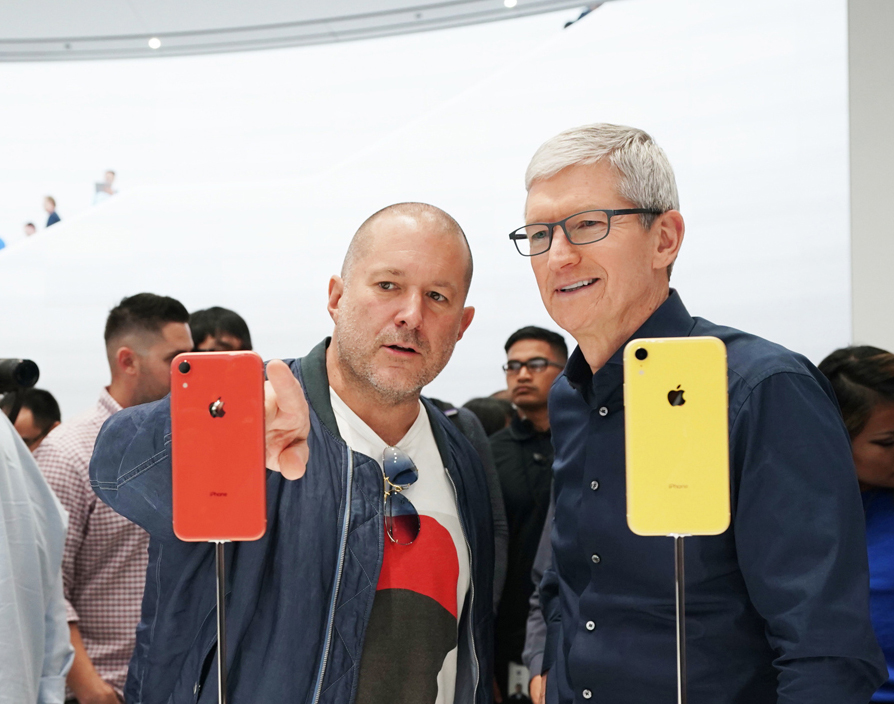No one is denying that the iPhone changed everything. When Steve Jobs introduced the first iteration of the smartphone back in 2007, he set in motion a whole new era of digital innovation. For entrepreneurs, the advent of the device meant entirely new markets and opportunities to launch new startups and do business in. Fast-forward 11 years to the annual Apple keynote event and we’re left wondering if the latest range of products to come out of the Cupertino headquarters still excites startup founders.
And there’s reason to be sceptical about whether or not the iPhone XS, iPhone XS Max or iPhone XR can revolutionise the market the same way the gadget’s first generation did. “Apple’s latest iPhones are not creating the buzz they once did,” said Peter Dorotiak, founder and managing director at Aspect IT, the tech firm. Speaking with Elite Business, he argued that while the new range of phablets consists of some truly amazing products and that the more secure Face ID program is a good thing, it only offers incremental improvements to the existing models and not any huge leaps forward. “Business owners and entrepreneurs will struggle to justify the cost unless they have the real need to do so,” he added.
However, not everyone agrees. For instance, Nathan Baranowski, managing director of ojo solutions, a technology consultancy, told us he was especially excited about the beefed up augmented reality (AR) technology included in the iPhone XS, iPhone XS Max and iPhone XR. “This is huge,” he exclaimed “We have come a long way since the world of Pokémon Go. The opportunity [for founders] to now bring their business directly to customers, share information and take [them] on a different journey is massive. Whether it’s about creating a new marketing campaign, building an online shop or having an immersive video conference, the opportunities with the AR features are endless.”
Others pointed out that the new dual-SIM capabilities of the iPhone XS range will open up a whole new world for active entrepreneurs. “This will be music to the ears of jet-setting startuppers who can now manage an international SIM along with their personal SIM at the same time, potentially resulting in both better service and cheaper calls [and] data while abroad,” said Jack Bird, content and off page SEO specialist at Add People, the digital marketing agency. “For those that are interested, it also means that your work and personal phone can become one – the ability to see which phone number an incoming call is for is particularly handy.”
That’s all good for the smartphones but what about the new Apple Watch Series 4? The new wearable gadget made the headlines not just because it’s a slimmer version of last year’s model but also because it showcased how seriously Apple is taking the healthcare side of the product. As an example, the new Apple Watch enables users to accurately track their heart rate and detect arrhythmia. Moreover, the gadget can understand if the wearer falls over and alert emergency services if the person remains unresponsive for more than 60 seconds.
It’s easy to see why Apple has moved down this road. Over the past few years wearables have become increasingly popular ways to keep track of one’s health, with US consumer use jumping from 9% to 33% between 2014 and 2018, according to a Business Insider report. A similar trend can be spotted in Britain where several new fitness technology startups are using the latest gadgets and gizmos to help fight the UK obesity crisis.
However, it’s not just Apple shareholders – who all recently celebrated the company’s $1tn valuation – who can be happy about this update. For instance, Baranowski is thrilled about how the new Apple Watch Series 4 can improve a startup founder’s life. “This is the first upgrade to the Apple Watch that really matters,” he said. “Be it productivity or health, the ability to use a wearable to support the way people work is key. We are all used to wearing fitness trackers or using watches to do everything from tracking meetings, reducing waste in warehouses to ensuring people move during the day. The application of the watch to be more than a watch with an iPhone also allows someone to be fully connected where ever they are, whatever they are doing.”
Even Dorotiak, who was lukewarm to the new iPhones, is slightly optimistic about what the new smartwatch could mean for entrepreneurs. “This can only be a positive thing for business owners, whose health should be made a priority,” he said. “Juggling long working hours with family life means that health is often last on the list. With a monitor literally on the wearer’s arm, health cannot be ignored, which could encourage wearers to do something about it.”
It seems that even though none of the devices announced at the keynote event will revolutionise the market any time soon, they still offer entrepreneurs opportunities to improve both their personal health and that of their businesses.![]()
Share via:








































